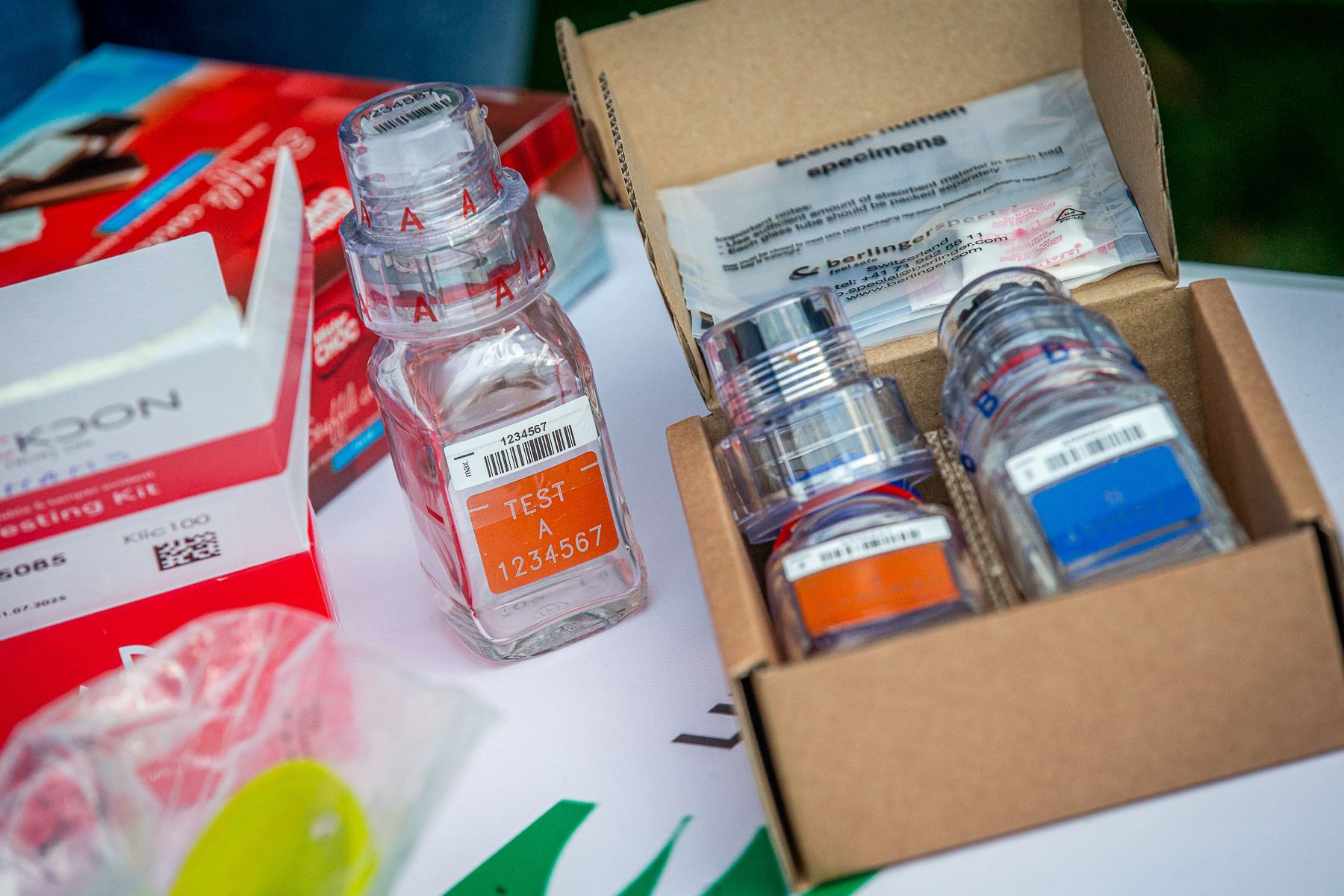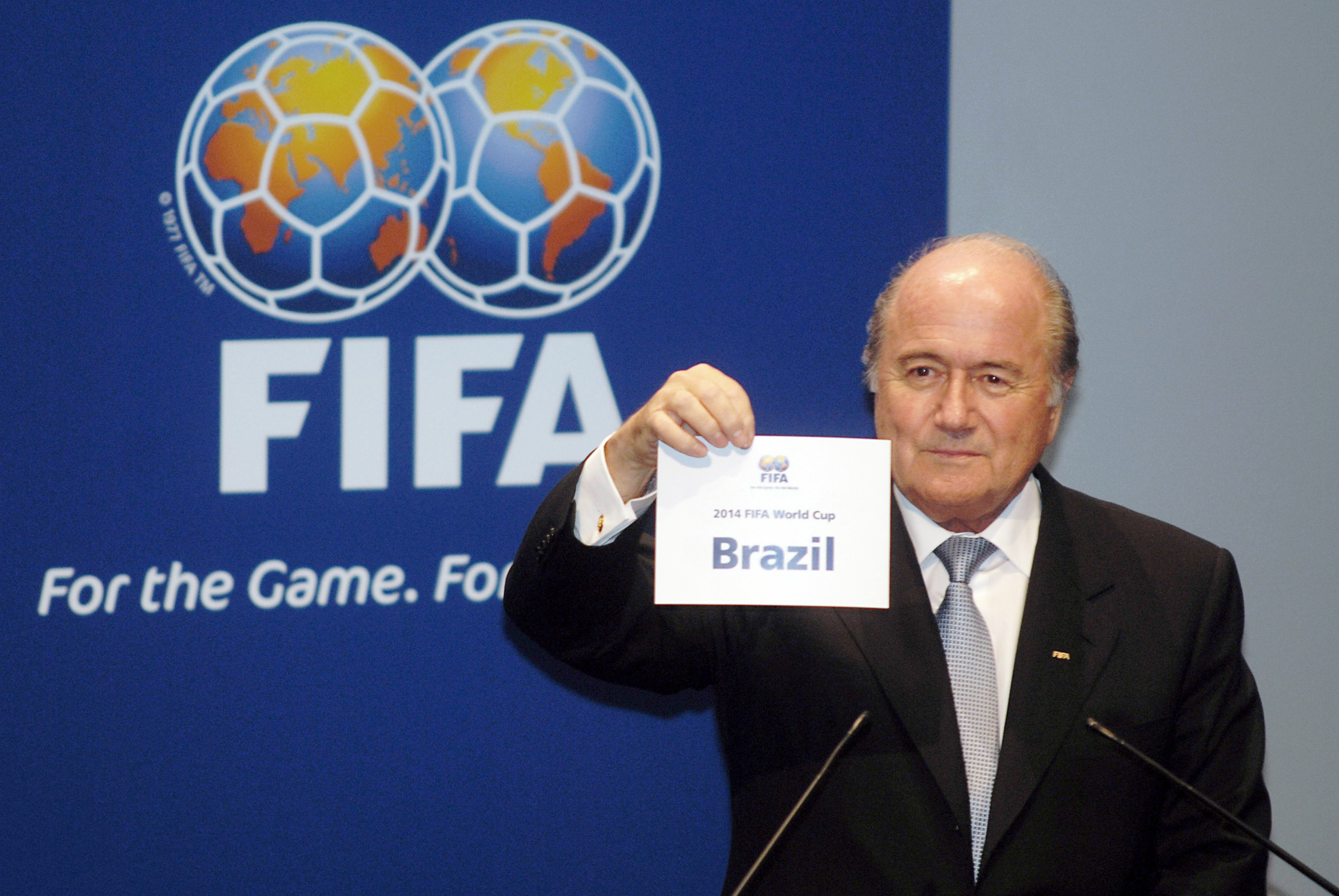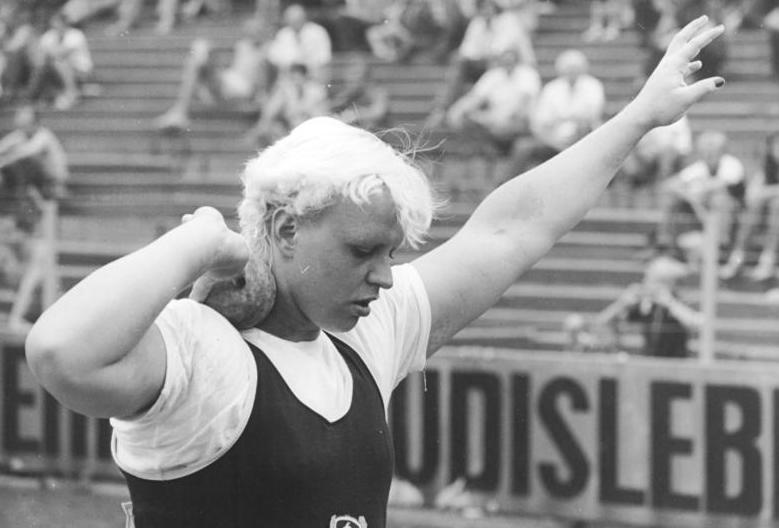|
Swiss Laboratory For Doping Analyses
The Swiss Laboratory for Doping Analyses (French: ''Laboratoire suisse d'analyse du dopage'', LAD) is the only Doping in sport, anti-doping laboratory in Switzerland. It is affiliated to the University Hospital of Lausanne and is located in Épalinges (urban area of Lausanne). History The Swiss Laboratory for Doping Analyses was founded in 1990 and accredited by the International Olympic Committee in 1991. It is also accredited by the World Anti-Doping Agency. Mission The Swiss Laboratory for Doping Analyses is the testing laboratory for many international sport competitions such as the Tour de France (since 1997), the UEFA Euro 2008 and the 2014 FIFA World Cup. Notes and references See also * Biological passport External links * {{authority control Anti-doping organizations Laboratories in Switzerland Research institutes in Switzerland 1990 establishments in Switzerland ... [...More Info...] [...Related Items...] OR: [Wikipedia] [Google] [Baidu] |
Doping In Sport
In competitive sports, doping is the use of banned athletic performance-enhancing drugs by athletic competitors as a way of cheating in sports. The term ''doping'' is widely used by organizations that regulate sporting competitions. The use of drugs to enhance performance is considered unethical, and therefore prohibited, by most international sports organizations, including the International Olympic Committee. Furthermore, athletes (or athletic programs) taking explicit measures to evade detection exacerbate the ethical violation with overt deception and cheating. The origins of doping in sports go back to the very creation of sport itself. From ancient usage of substances in chariot racing to more recent controversies in doping in baseball, doping in tennis, doping at the Olympic Games, and doping at the Tour de France, popular views among athletes have varied widely from country to country over the years. The general trend among authorities and sporting organizations over the ... [...More Info...] [...Related Items...] OR: [Wikipedia] [Google] [Baidu] |
Épalinges
Épalinges (; frp, Epalinjo) is a municipality in the district of Lausanne in the canton of Vaud in Switzerland. It is a suburb of the city of Lausanne. History Épalinges is first mentioned in 1182 as ''de Spanengis''. Geography Épalinges has an area, , of . Of this area, or 18.8% is used for agricultural purposes, while or 25.6% is forested. Of the rest of the land, or 56.7% is settled (buildings or roads).Swiss Federal Statistical Office-Land Use Statistics 2009 data accessed 25 March 2010 Of the built up area, housing and buildings made up 42.7% and transportation infrastructure made up 8.3%. Power and water infrastructure as well as other special developed areas made up 1.3% of the area while parks, green belts and sports fields made up ... [...More Info...] [...Related Items...] OR: [Wikipedia] [Google] [Baidu] |
Switzerland
). Swiss law does not designate a ''capital'' as such, but the federal parliament and government are installed in Bern, while other federal institutions, such as the federal courts, are in other cities (Bellinzona, Lausanne, Luzern, Neuchâtel, St. Gallen a.o.). , coordinates = , largest_city = Zürich , official_languages = , englishmotto = "One for all, all for one" , religion_year = 2020 , religion_ref = , religion = , demonym = , german: Schweizer/Schweizerin, french: Suisse/Suissesse, it, svizzero/svizzera or , rm, Svizzer/Svizra , government_type = Federalism, Federal assembly-independent Directorial system, directorial republic with elements of a direct democracy , leader_title1 = Federal Council (Switzerland), Federal Council , leader_name1 = , leader_title2 = , leader_name2 = Walter Thurnherr , legislature = Fe ... [...More Info...] [...Related Items...] OR: [Wikipedia] [Google] [Baidu] |
University Hospital Of Lausanne
The Lausanne University Hospital (french: Centre hospitalier universitaire vaudois, CHUV), in Lausanne, is one of the five university hospitals in Switzerland. The Lausanne University Hospital is linked to the Faculty of Biology and Medicine of the University of Lausanne (UNIL). The CHUV's medical services benefit over 45,000 patients a year. Almost 3000 babies are born every year in the obstetrics department. Approximately 9000 employees work at the CHUV. The university hospital acts as a general university hospital for people living in the Lausanne area, covering all areas of medical treatment. It also serves as a hospital offering acute and specialist care for the whole Canton of Vaud and parts of French-speaking Switzerland. In 2019, the university hospital was rated as the leading hospital in Switzerland and 9th best hospital in the world by Newsweek Magazine. Organisation Departments of the University Hospital of Lausanne: * Department oEmergency Medicine* Departmen ... [...More Info...] [...Related Items...] OR: [Wikipedia] [Google] [Baidu] |
Lausanne
, neighboring_municipalities= Bottens, Bretigny-sur-Morrens, Chavannes-près-Renens, Cheseaux-sur-Lausanne, Crissier, Cugy, Écublens, Épalinges, Évian-les-Bains (FR-74), Froideville, Jouxtens-Mézery, Le Mont-sur-Lausanne, Lugrin (FR-74), Maxilly-sur-Léman (FR-74), Montpreveyres, Morrens, Neuvecelle (FR-74), Prilly, Pully, Renens, Romanel-sur-Lausanne, Saint-Sulpice, Savigny , twintowns = Lausanne ( , , , ) ; it, Losanna; rm, Losanna. is the capital and largest city of the Swiss French speaking canton of Vaud. It is a hilly city situated on the shores of Lake Geneva, about halfway between the Jura Mountains and the Alps, and facing the French town of Évian-les-Bains across the lake. Lausanne is located northeast of Geneva, the nearest major city. The municipality of Lausanne has a population of about 140,000, making it the fourth largest city in Switzerland after Basel, Geneva, and Zurich, with the entire agglomeration area having about 420,000 inhabit ... [...More Info...] [...Related Items...] OR: [Wikipedia] [Google] [Baidu] |
International Olympic Committee
The International Olympic Committee (IOC; french: link=no, Comité international olympique, ''CIO'') is a non-governmental sports organisation based in Lausanne, Switzerland. It is constituted in the form of an association under the Swiss Civil Code (articles 60–79). Founded by Pierre de Coubertin and Demetrios Vikelas in 1894, it is the authority responsible for organising the modern ( Summer, Winter, and Youth) Olympic Games. The IOC is the governing body of the National Olympic Committees (NOCs) and of the worldwide "Olympic Movement", the IOC's term for all entities and individuals involved in the Olympic Games. As of 2020, there are 206 NOCs officially recognised by the IOC. The current president of the IOC is Thomas Bach. The stated mission of the IOC is to promote the Olympics throughout the world and to lead the Olympic Movement: *To encourage and support the organization, development, and coordination of sport and sports competitions; *To ensure the regular c ... [...More Info...] [...Related Items...] OR: [Wikipedia] [Google] [Baidu] |
World Anti-Doping Agency
The World Anti-Doping Agency (WADA; french: Agence mondiale antidopage, AMA) is a foundation initiated by the International Olympic Committee based in Canada to promote, coordinate, and monitor the fight against drugs in sports. The agency's key activities include scientific research, education, development of anti-doping capacities, and monitoring of the World Anti-Doping Code, whose provisions are enforced by the UNESCO International Convention Against Doping in Sport. The aims of the Council of Europe Anti-Doping Convention and the United States Anti-Doping Agency are also closely aligned with those of WADA. History The World Anti-Doping Agency is a foundation created through a collective initiative led by the International Olympic Committee (IOC). It was set up on 10 November 1999 in Lausanne, Switzerland, as a result of what was called the "Declaration of Lausanne", to promote, coordinate and monitor the fight against drugs in sports. Since 2002, the organization's head ... [...More Info...] [...Related Items...] OR: [Wikipedia] [Google] [Baidu] |
Tour De France
The Tour de France () is an annual men's multiple-stage bicycle race primarily held in France, while also occasionally passing through nearby countries. Like the other Grand Tours (the Giro d'Italia and the Vuelta a España), it consists of 21 stages, each a day long, over the course of 23 days, coinciding with the Bastille Day holiday. It is the oldest of the Grand Tours and generally considered the most prestigious. The race was first organized in 1903 to increase sales for the newspaper '' L'Auto'' and is currently run by the Amaury Sport Organisation. The race has been held annually since its first edition in 1903 except when it was stopped for the two World Wars. As the Tour gained prominence and popularity, the race was lengthened and its reach began to extend around the globe. Participation expanded from a primarily French field as more riders from all over the world began to participate in the race each year. The Tour is a UCI World Tour event, which means that th ... [...More Info...] [...Related Items...] OR: [Wikipedia] [Google] [Baidu] |
UEFA Euro 2008
The 2008 UEFA European Football Championship, commonly referred to as UEFA Euro 2008 or simply Euro 2008, was the 13th UEFA European Championship, a quadrennial football tournament contested by the member nations of UEFA (the Union of European Football Associations). It took place in Austria and Switzerland (both hosting the tournament for the first time) from 7 to 29 June 2008. The tournament was won by Spain, who defeated Germany 1–0 in the final. Spain were only the second nation to win all their group stage fixtures and then the European Championship itself, matching France's achievement from 1984. Spain were also the first team since Germany in 1996 to win the tournament undefeated. Greece were the defending champions going into the tournament, having won UEFA Euro 2004. They recorded the worst finish in Euro 2008, losing their three group fixtures and collecting the least prize money. Throughout 31 matches, the participating nations totalled 77 goals, the same as the ... [...More Info...] [...Related Items...] OR: [Wikipedia] [Google] [Baidu] |
2014 FIFA World Cup
The 2014 FIFA World Cup was the 20th FIFA World Cup, the quadrennial world championship for men's national football teams organised by FIFA. It took place in Brazil from 12 June to 13 July 2014, after the country was awarded the hosting rights in 2007. It was the second time that Brazil staged the competition, the first being in 1950, and the fifth time that it was held in South America. Fans and pundits alike consider this edition of the World Cup to be one of the best ever held. 31 national teams advanced through qualification competitions to join the host nation in the final tournament (with Bosnia and Herzegovina as the only debutant). A total of 64 matches were played in 12 venues located in as many host cities across Brazil. For the first time at a World Cup finals, match officials used goal-line technology, as well as vanishing spray for free kicks. FIFA Fan Fests in each host city gathered a total of 5 million people, and the country received 1 million v ... [...More Info...] [...Related Items...] OR: [Wikipedia] [Google] [Baidu] |
Biological Passport
An athlete biological passport is an individual electronic record for professional athletes, in which profiles of biological markers of doping and results of doping tests are collated over a period of time. Doping violations can be detected by noting variances from an athlete's established levels outside permissible limits, rather than testing for and identifying illegal substances. Although the terminology ''athlete passport'' is recent, the use of biological markers of doping has a long history in anti-doping. Maybe the first marker of doping that tries to detect a prohibited substance not based on its presence in urine or blood but instead the induced deviations in biological parameters is the testosterone over epitestosterone ratio (T/E). The T/E has been used by sports authorities since the beginning of the 1980s to detect anabolic steroids in urine samples. A decade later, in 1997, markers of blood doping were introduced by some international federations, such as the Union ... [...More Info...] [...Related Items...] OR: [Wikipedia] [Google] [Baidu] |
Anti-doping Organizations
In competitive sports, doping is the use of banned athletic performance-enhancing drugs by athletic competitors as a way of cheating in sports. The term ''doping'' is widely used by organizations that regulate sporting competitions. The use of drugs to enhance performance is considered unethical, and therefore prohibited, by most international sports organizations, including the International Olympic Committee. Furthermore, athletes (or athletic programs) taking explicit measures to evade detection exacerbate the ethical violation with overt deception and cheating. The origins of doping in sports go back to the very creation of sport itself. From ancient usage of substances in chariot racing to more recent controversies in doping in baseball, doping in tennis, doping at the Olympic Games, and doping at the Tour de France, popular views among athletes have varied widely from country to country over the years. The general trend among authorities and sporting organizations over the ... [...More Info...] [...Related Items...] OR: [Wikipedia] [Google] [Baidu] |


.jpg)



.jpg)
